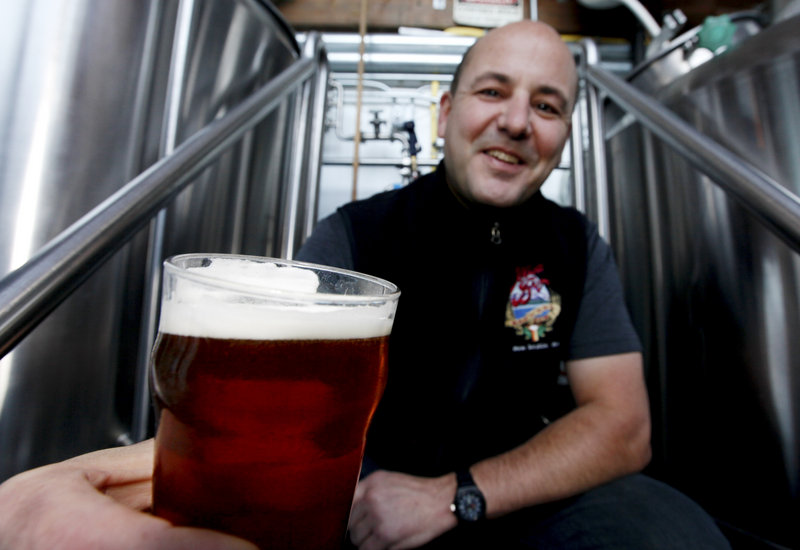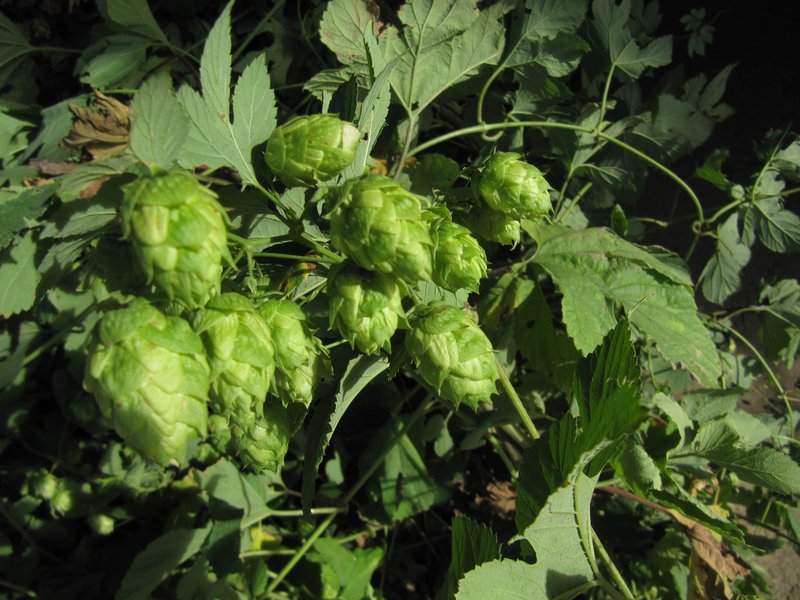TOPPENISH, Wash. – Call it a hops revolution.
Northwest farmers have begun planting new varieties of the key flavor ingredient in beer and working with researchers to develop ways to grow the crop without pesticides. The movement stems from a federal decision last year requiring brewers who label their beer as organic to use organic hops beginning in 2013.
Some say the U.S. Department of Agriculture’s new rule could force organic craft brewers to tweak longtime recipes. Others believe the change will spark even more creativity among producers of organic beer.
Ultimately, it should mean people who want to buy organic beer will find more choice in the beer aisle, though they might have to pay a few cents extra per bottle.
“The organic beer market is still relatively small, but it’s definitely catching on,” said Ronnie Cummins, national director of the Organic Consumers Association, a nonprofit that promotes organic goods.
The United States is the world’s second-largest producer of hops, behind Germany, with more than a quarter of the world crop. Most are grown in the Northwest — where the craft beer movement hatched.
In central Washington’s Yakima Valley, the hops industry celebrates its contribution to agriculture with an annual “fresh hop” ale festival complete with beer competitions and tastings, but only a few local growers have tried to tackle growing hops organically.
Brad Carpenter’s family expanded their hops operation to include organic hops in 2000. They quit six years later.
Without chemicals, pests such as mites and aphids can damage the crop and reduce yields. Alternative methods to controlling pests also tend to be more expensive.
And for many years, brewers could market their beer as organic even if they used conventional hops, arguing that organic hops simply weren’t available.
Last year, the National Organic Standards Board, which advises the U.S. Agriculture Department, decided that organic brewers must use organic hops beginning in 2013, and the Carpenters are back in the organic business. About six acres of the farm are now planted in organic hops, comprising less than 1 percent of their total crop, but more will be planted in the future.
Carpenter is working with Fremont Brewing Co. of Seattle on test plots with new varieties and alternative growing methods for planting, managing and harvesting hops.
Other growers, both inside and outside the Northwest, also are boosting organic acreage, many in hopes of surpassing New Zealand as the world leader in organic hops production.
Send questions/comments to the editors.




Success. Please wait for the page to reload. If the page does not reload within 5 seconds, please refresh the page.
Enter your email and password to access comments.
Hi, to comment on stories you must . This profile is in addition to your subscription and website login.
Already have a commenting profile? .
Invalid username/password.
Please check your email to confirm and complete your registration.
Only subscribers are eligible to post comments. Please subscribe or login first for digital access. Here’s why.
Use the form below to reset your password. When you've submitted your account email, we will send an email with a reset code.